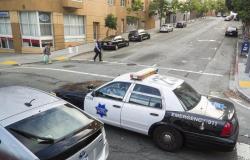
Here are the main lessons from the election.
The right-wing of the EPP has succeeded…
Manifesto on subjects like the Green Deal or migration, the right-wing strategy put in place over the past year by the German Manfred Weber, president and head of the EPP parliamentary group, has percolated at the national level, and it has paid off. The conservatives are the big winners of the elections and strengthen their position as the most important group in the chamber. The EPP member parties come first or tied for first in around fifteen countries including Germany (largely) and Spain; share first place in Poland, Sweden, and Belgium; achieved good results in Hungary, Italy and the Netherlands.
The EPP should occupy between 185 and 190 seats of the 720 in the next European Parliament, compared to 176 (out of 705) at the end of the previous legislature.” We are the only pro-European force winning seats”, welcomed Manfred Weber. Its position as winner of the European elections once again allows the EPP to claim the presidency of the Commission for its Spitzenkandidatin, Ursula von der Leyen. Germany has a good chance of winning a second term, but the game is not yet over.
The “von der Leyen majority” has shrunk
During the past legislature, the EPP formed, with the Socialists and Democrats (S&D) and the Liberals, an informal majority known as the “von der Leyen majority”, which supported the Commission and its president. The three groups continue to have, together, a majority of just over 400 seats, but the “true-false” tripartite has lost its feathers. The S&D is penalized by the decline of the German social democrats, but maintains. however its second group position, with around 135 seats. It is enjoying good results in Spain, Italy, France, the Nordic countries, and even Belgium. The fall of the liberals is clearer: Renew, which had 102 elected officials, lost around twenty seats, notably due to the defeat in France of the Need for Europe coalition, gathered around the Macronists.
The European Parliament is taking a sharp turn to the right. The “von der Leyen” majority is maintained, at least on paper
There is, arithmetically, no alternative to renewing the alliance between the EPP, the S&D and Renew. Would this majority be sufficient to ensure the re-election of Ursula von der Leyen by the European Parliament, if she is again designated by the heads of state and government of the Twenty-seven, during the meeting of the European Council? next June 27 and 28? The bar is set at 361 deputies.
Sophie Pornschlegel, director of studies and development at the Europe Jacques Delors think tank, believes that the President of the Commission “A stronger outcome from this election, that’s for sure”. “UvdL” is, however, far from assured of getting enough votes from the three major groups, including its own. “Within the EPP, there are still major divisions regarding her person because of the political choices she has made, such as the Green deal. The EPP is so right-wing that it almost seems left-wing” , quips Ms. Pornschlegel. Ursula von der Leyen has not forgotten that in 2019, she was elected with a narrow majority of 9 votes out of 705. She is therefore seeking to ensure a viaticum, in particular by courting the Prime Minister’s troops Italian far-right Giorgia Meloni. But by venturing to this side of the political spectrum, the President of the Commission takes the risk of alienating socialists and liberals. “And if she instead seeks votes from the Greens, she will lose some in the EPP”, underlines a European Source. Who slips: “Perhaps European leaders will judge that it is not in the best position”.
Eric Maurice, analyst at the European policy center in Brussels, is quite optimistic about the German’s reappointment: “We could have imagined a majority would be difficult to find for Ursula von der Leyen, but there is a certain stability in Parliament European and a strengthened position of the EPP. There were quite a few signs which suggested that the support of the European Council was not necessarily guaranteed, but the configuration at the end of the vote reduced the chances of seeing it want to change the personnel, especially as it simplifies the appointments game” – several high European positions are to be filled.
Here are the results of the 2024 elections in Belgium (European, federal and regional)!
The far right is growing in the three big Member States
As in 2019, far-right parties are growing, but less than predicted by the polls. “The rise of the far right has variable geometry. Four of the five largest member states send significant nationalist and far-right contingents. But in a number of small states, it is doing worse than expected.”, notes Éric Maurice. If the group of European Conservatives and Reformists (ECR) increases from 69 to 73 seats, it owes this in particular to the performance of the post-fascist Fratelli d’Italia party of Council President Giorgia Meloni, who elected 25 deputies, as well as that in the Polish PiS, which even in decline, retains 20 elected officials.
The situation is comparable within the Identity and Democracy (ID) group, which benefits from the triumph of the National Rally, which received 31.7% of the vote in France. Thirty elected representatives from the RN will sit in Parliament, making it the largest national delegation, tied with the German Christian Democrats of the EPP. The ID goes from 49 seats to 58, but this is a sham increase, since this was roughly the number of elected officials in the group before excluding the AfD, considered unsuitable, at the approach of the elections. ID is suffering from the rout of the Italians of Matteo Salvini’s La Lega: of the 22 deputies they had, they will only retain 8. Their government coalition partner Giorgia Meloni has siphoned off the Italian far-right vote.
The count of elected representatives from the far right and the nationalist right must also include members of parties not registered or not yet affiliated with a European family. Among the first, the AfD made a breakthrough in Germany (especially in the east), going from 12 to 17 seats. The far-right party ranks second, ahead of Chancellor Scholz’s Social Democrats. In the ranks of those not registered, we also find the Fidesz of Hungarian Prime Minister Viktor Orban, who left the EPP (to avoid being excluded) and whose ten elected officials are looking for a political family.
A sanction vote in Denmark where the extreme right does not break through
Recomposition of the political landscape
As after each election, there will be tectonic shifts which will reconfigure the European Parliament. Often mentioned, the merger of far-right groups remains a very hypothetical scenario. “There will still be movements in right-wing groups that can change, not the general dynamic, but even just the place of ECR or ID in relation to Renew,” nevertheless predicts Eric Maurice. If the Liberals were to lose their third place, “it would not be trivial”. There is also talk of the possible emergence, alongside La Gauche, of a second radical left group, “rather pro-Russian and very populist” , poses Sophie Pornschlegel. This group could bring together parties such as that of the German Sahra Wagenknecht or Smer of the Slovak Prime Minister Robert Fico, suggests Sophie Pornschlegel.
Furthermore, some delegations would like to change creameries. On the Belgian side, the elected representative of the Engagés, Yvan Verougstraete, is tempted to leave the EPP, too right-wing for his taste. The N-VA could abandon the ECR to join the ranks of the EPP or Renew. The Liberals are also discussing with the four elected representatives of the pan-European Volt party. For the moment, we are still only guessing. The groups will be formed in the coming weeks – a group must bring together at least 23 elected representatives from the seven Member States – but it will not be until mid-July, on the eve of the inaugural session, that we will know who sits where.
The impact of the European elections on national politics
European elections are organized by direct universal suffrage in all Member States, every five years, to renew the European Parliament. Addition of twenty-seven national ballots “they also serve as tests and referendums to see what the political mood is in the different member states”points out Sophie Pornschlegel.
In Germany, the parties of the red/green/liberal coalition have all been defeated and Chancellor Scholz’s SPD has even been overtaken by the AfD. In France, President Macron, faced with the very clear victory of his RN opponents, decided to dissolve the National Assembly and organize early legislative elections which will be held on June 30 and July 7. The fact that power emerges so weakened in the two largest member states of the Union will not be without consequences for European policy. “In Germany, we had a dysfunctional coalition with a weak chancellor who does not make decisions and that is unlikely to change”, sighs Eric Maurice. “France’s European policy is mainly made at the Élysée. This means that Macron still keeps control. But it’s true that it’s going to be more difficult for him to find internal legitimacy for certain choices”, adds Sophie Pornschlegel. Who predicts that this double defeat will not help improve disharmonious Franco-German relations.





